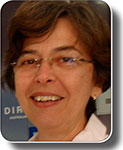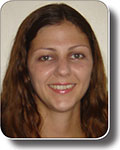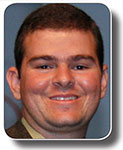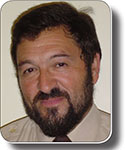Laboratory and well-history based predictions of productivity decline due to oilfield scaling—analytical modelling and field study
Themis Carageorgos A , Marcelle Pinto Marotti B , Raphael Monteiro B and Pavel Bedrikovetsky AA Australian School of Petroleum
B Lenep-UENF
The APPEA Journal 49(1) 171-182 https://doi.org/10.1071/AJ08010
Published: 2009
Abstract
Sulphate scaling may develop during offshore waterflood projects where mixing of injected and formation waters causes salt precipitation. Salt deposition results in permeability decline and, consequently, in impairment of well productivity. The problem has been widely presented in the literature for the North Sea, Campos Basin and the Gulf of Mexico. Recently several oil companies have reported several field cases of oilfield scaling in Australia.
In this paper, methods are summarised for forecasting productivity decline from the history of well productivity index decline, produced water composition, and also from laboratory corefloods. The methods account for chemical reactions based on exact analytical solutions of inverse and forward modelling of quasi steady state oil-water flow towards producing wells. The main result obtained from the analytical model is a measure of the decline in productivity index with time for either linear flow in the case of a coreflood or the radial flow towards well.
The analytical model has been used to predict further productivity decline in scaled-up producers of the deepwater offshore field X (Campos Basin, Brazil). Laboratory corefloods were carried out for field X cores and waters, and the model coefficients were determined. The productivity losses due to barium sulphate scaling have been noticed during several years of seawater flooding. The values obtained for reaction kinetics and formation damage coefficients are similar to those obtained from corefloods.

Themis Carageorgos is a research fellow at the Australian School of Petroleum (ASP) of the University of Adelaide. She has BSc in chemical engineering from the University of Pernam- buco (Brazil) and a PhD in min- eral resources engineering from Imperial College (University of London). From 2000–7 she was an associated professor in petroleum engineering at State North Fluminense University (Brazil). Her research interests are in laboratory studies of flow in porous media and of mineral processing. tcarageorgos@asp.adelaide.edu.au |

Marcelle Pinto Marotti has a BSc in mechanic engineering from the State University of Rio de Janeiro and a MSc in reservoir engineering from North Flumi- nense State University (Lenep- UENF). Her research interests are in formation damage and reservoir modelling. Marcelle has worked at Petrobras since 2008. marcellemarotti@yahoo.com.br |

Raphael Monteiro has both a BSc and a MSc in reservoir engi- neering from North Fluminense State University (Lenep-UENF). His research interests are in formation damage and reservoir modelling. Raphael has worked at Petrobras since 2006. raphael.monteiro@petrobras.com.br |

Pavel Bedrikovetsky is pro- fessor of petroleum engineering at ASP. Pavel is an author of two books in reservoir engineering and 140 technical papers in international journals and SPE. His research covers formation damage, EOR and non-linear mathematical physics. He holds a MSc in applied mathematics, a PhD in fluid mechanics and a DSc in reservoir engineering from Moscow Oil-Gas University. From 1991–4 he was a visiting professor at Delft University of Technology and at Imperial Col- lege of Science and Technology. Pavel served as section chairman, short course instructor, key speaker and steering committee member at several SPE Conferences and ATW. He is 2008–9 SPE Distinguished Lecturer. pavel@asp.adelaide.edu.au |


